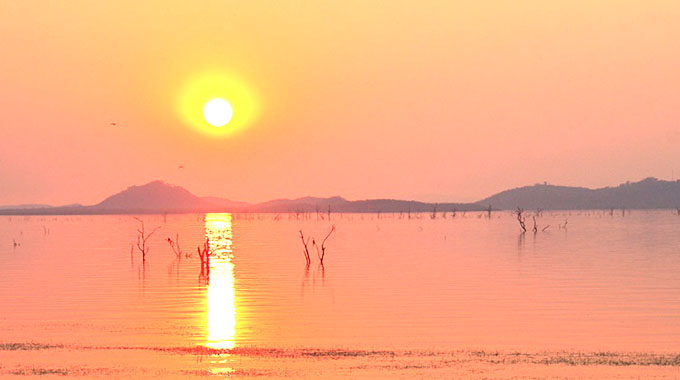
Walter Nyamukondiwa Kariba Bureau
|THE Technical Committee on Development and Management of the Fisheries and Aquaculture of Lake Kariba has recommended that Zimbabwe and Zambia implement their 2014 agreement to reduce fishing rigs operating in Lake Kariba to ensure the survival of the industry.
The committee, which recently met in Kariba for its 8th Technical Consultation workshop on Development and Management of the Fisheries and Aquaculture of Lake Kariba also resolved to engage the management committee comprising permanent secretaries and ministers from the two countries ahead of their meeting scheduled for November in Zambia, to ensure that the agreement is implemented.
Zimbabwe and Zambia, which have over 1 500 rigs on the lake, had agreed in 2014 to reduce this in line with scientific studies that recommended the lake can only sustain a maximum of 500 rigs.
Zambia will remove 50 rigs from the lake every year while Zimbabwe will reduce its fleet by 13 rigs per year.
Zambia officially has 1 076 rigs although there are indications that several others remain unaccounted for in areas around Binga, while the official number for Zimbabwe is 399 rigs.
Speaking at the workshop, chairperson and Ministry of Environment, Tourism and Hospitality chief environment officer Mr Joseph Shoko said the two countries should find ways of resolving emerging issues.
“The purpose of this meeting is to make sure there is sustainable fishing in our water bodies,” said Mr Shoko.
“Lake Kariba is a shared resource and we are saying Zimbabwe and Zambia should take measures to ensure that our fish does not deteriorate especially considering climate change issues where deterioration can occur naturally.”
He said the major reason for the depletion of fish in the lake was the rate at which people are fishing and there was need to look at the number of fishing rigs.
Fish is regarded as an integral component of food security in the country with Lake Kariba accounting for about 70 percent of fish protein.
“This technical committee meeting is there to come up with the modalities to ensure that fish stock does not deteriorate. It was agreed at one of the technical committee meetings in 2014 that Zambia and Zimbabwe should reduce the number of rigs,” he said.
Zimbabwe Parks and Wildlife Management Authority chief ecologist Mr Itayi Tendaupenyu said apart from reducing the number of rigs in the lake another issue was of reducing the kapenta fishing nights.
This comes amid indications that the total fishing nights are about three times above the sustainable level at 324 000 nights instead of 109 000 nights.
“Then comes the issue of the full moon stoppage which was an attempt at reducing the fishing effort. Zambia has 10 days and we (Zimbabwe) have seven days.
“When we implemented this (seven-night moratorium) we actually reduced our fishing effort by 23 percent and for Basin 5 which is Sanyati Eastern Basin and part of Basin 4 we realised an increase in catches from 88kgs per night to 188kgs per night,” he said.
Zambia argued that Zimbabwe should also increase the number of nights during the full moon stoppage to match theirs at 10 nights.
A 1999 protocol stipulates that Zimbabwe should have a share of 55 percent from the Lake and Zambia 45 percent.
The Committee also recommended a rig survey in the lake to ascertain the exact number of boats with the support of the Food and Agriculture Organisation, which hosts the biennial technical Committee meeting.
